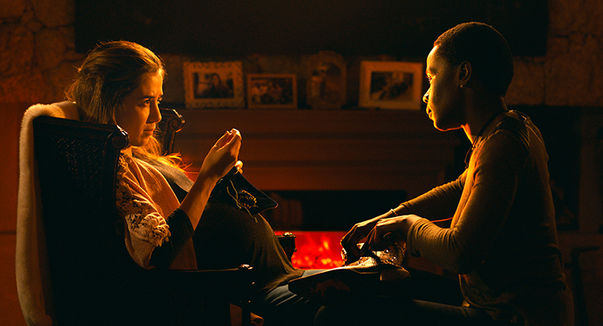The fantastic real Brazil
By Thayná Almeida

Still from GOOD MANNERS
Building on the popular imaginary, from the world of werewolves, Good Manners is an essay on human relationships.
Good Manners, by Juliana Rojas and Marcos Dutra, resorts to the fantastic to talk about Brazil and emotions. At the same time that the image of the werewolf is used, such an important figure from Brazilian folklore, we see, on a parallel plane, a film concerned with understanding the relationships between people and the emotional nuances of a generation influenced by pop culture.
Although approaching the canon of horror, the film escapes from the genre’s conventions regarding, for instance, the female representation. The narrative denies male dominance. Paternalistic Brazil is suppressed, giving rise to a "matriarchal nation". On the screen, women are protagonists of their stories and "self-suffice".
The female protagonists of Good Manners, a black domestic servant and a white boss, represent the Brazilian social-historical context. But the film deals with the relationship between them as to make these women transcend this space of representation. Clara is black and initially suffers from her lack of opportunity. Ana is white, a farmer's daughter, but has to be exiled in the city of São Paulo because her parents refuse to accept her pregnancy. The pain of each of them leads the narrative; the complicity between the two, so full of affection, seems to be what allows them to keep going amidst life’s several mishaps.
But what makes Good Manners especially unique is that all these intimate and emotional issues are approached through a popular genre, terror, and through a tale that is strong in Brazil’s countryside: the legend of the werewolf. Juliana and Marco escape, however, from a playful reading. They, on the other hand, use this popular imaginary to make a film that carries within itself cultural plurality and, more than that, social and human complexity.

